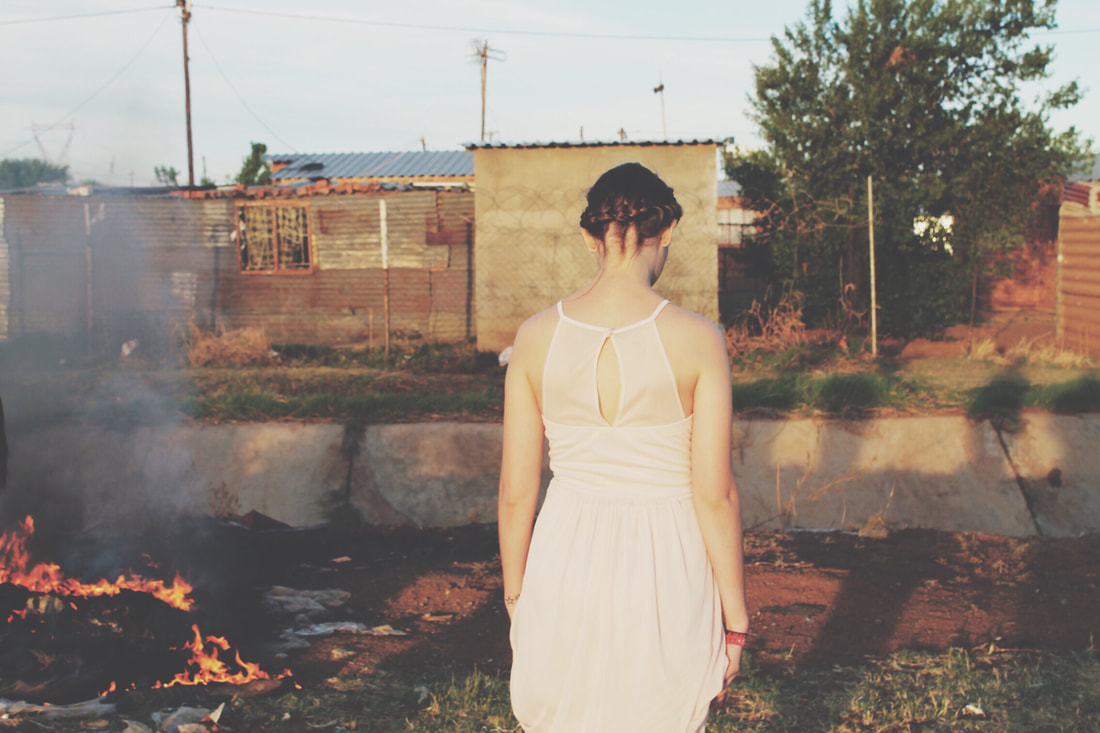“Things fall apart, the centre cannot hold; mere anarchy is loosed upon the world.” So wrote William Butler Yeats in his poem The Second Coming. It is the idea that the very foundation on which our world is built is collapsing. There is a systemic unravelling. This inspired the title of a book by Nigerian author Chinua Achebe: Things Fall Apart. The story is set in a moment of rupture; the introduction of British imperialism to a traditional Nigerian community. It was a time in which change and continuation were in conflict. Should the old give way to the new? Some embraced change while others resisted. Does the opportunity of new extinguish the value of old? Significantly, the author raises concern for the need for mastery of traditional methods of farming. Do they have a place in this modern world of machine, malice and mass-production? We too are on the edge of chaos. Life as we know it hangs in the balance. Some claim that humanity is on the brink of collapse. Others reckon that our current way of life will disappear and be replaced by something drastically different. In complex systems, cause and effect are not linear, static, nor simple. Any ecosystem is an intricate network of actors, interactions and environment. Similarly, the food chain is a web of interdependence. A food chain connects all living things within a given environment based on their dependence on one another to grow and function. While co-existence may seem ideal, it is competition that is the driver of evolution and innovation. Much of the world is based on this principle. It is the top-down pressures of predators, and bottom-up limitations of prey – not just in the animal kingdom, but in our own – that sustains us and keeps us moving forward. In theory, evolution either creates or destroys species. It is more than ‘eat or be eaten’. Those that prove weaker either become extinct or they adapt in order to survive. Are we prepared to change our ways to avoid a breakdown in the food chain or will we be our own demise? In our striving for ‘better, faster, more’ we have forged a double-edged sword. In our endeavours to eliminate disease, we create it. In our attempts to avoid threats, we generate them. What if we adopted instead a more inclusive, regenerative, circular economy? One in which we sever the ties between human progress and our consumption of finite resources. Could we shift the chain reaction already in play? Our food supply chains are under threat by the over-complexification of the food industry and an over-simplification of our understanding of cause-and-effect; generating a constellation of problems. On the one hand are forces that reduce the supply of food. On the other hand, are forces that increase the demand thereof. Naturally occurring factors include: water shortages, soil erosion, and extreme climate phenomena, amongst others. Human causation comes in the form of population growth, diet change, rising prices, and others. Forces of nature and human action are not mutually exclusive. Our behaviour – whether accidental, neglectful, or intentional – interacts with the environment in which it occurs. We find ourselves in the Anthropocene; the human epoch. It is an era of human-influenced disruption. We have the power to light a spark, fuel the fire, engulf the world in flame, extinguish the embers, and regenerate life from the ashes. We hold the power to prevent, solve, or accelerate the food crisis. What will we choose to do? Experts anticipate a global disaster by 2030 owing to the confluence of three significant shortages: food, energy, and water. Specifically, what caused the looming food crisis? What are the underlying drivers of change? Why and how are things changing? Here is a basic example of cause and effect in the food chain: the death and disappearance of bees. Not only do bees extract pollen to produce honey, plants rely on pollination in order to form seeds and fruit. Something as simple as the decline of the humble honey bee has resulted in a potentially catastrophic imbalance. Despite bee colonies collapsing and a reduction in pollinating capacity, there is a rise in demand for pollinator-dependent crops. Without bees, how would we ensure food security? How would ecosystems maintain their diversity? What would that world look like? We can trace current conditions back to several sources. If we consider cause and effect in the social realm: regions in which women are disempowered often see a rise in population growth as they lack the agency to make their own decisions and to make more informed choices. An increase in demand beyond the potential of food supply creates an imbalance in the food chain. In the technological realm we see emerging innovations that could transform the ways in which we extract, produce, distribute, consume, and dispose of food. However, these are not accessible to all. So-called developing nations struggle to escape the established linear model of ‘take, make, waste’. This leaves the globalised food industry largely stuck and skewed. In the economic realm we see that a rise in affluence often results in a change in diet. The wealthier one becomes, the more meat is consumed. If not meat, the more organic, healthy, and expensive one’s diet usually becomes. How do we ensure equity and fairness in access to quality food when poverty persists? If populations become more economically empowered, how do we reduce the harmful impact of meat production on the natural world? What could be the impact of a vegetarian movement? What of a vegan revolution? In the environmental realm the exploration and exploitation of natural resources for food gains tend to depend on unsustainable methods. How do we begin to restore resource abundance, reduce scarcity, and protect genetic diversity? In the political realm the uneven distribution of power in international relations has at times created marginalisation and mismanagement in the food world. How do we reconcile a problematic past as we look forward to a more fruitful future?
Originally published on APF
0 Comments
Leave a Reply. |
MARGUERITE COETZEE
ANTHROPOLOGIST | ARTIST | FUTURIST CATEGORIES
All
|




 RSS Feed
RSS Feed
